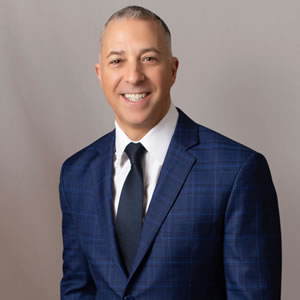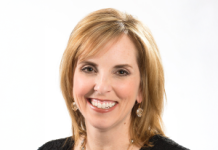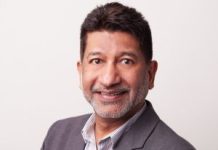Ben Reinberg Podcast Transcript
Ben Reinberg joins host Brian Thomas on The Digital Executive Podcast.
Brian Thomas: Welcome to Coruzant Technologies, Home of the Digital Executive Podcast.
Welcome to The Digital Executive. Today’s guest is Ben Reinberg, founder and CEO of Alliance, consolidate group of companies, a commercial real estate investing company with a large footprint in the medical office building sector across the United States.
He’s also author of the book Hard Assets and Hard Money for Hard Times. Ben’s company is on the front lines of managing large transactions for commercial buildings with a portfolio valued at more than 500 million. Ben and his team specialize in driving investments in industrial warehousing, medical retail properties, offices and multifamily housing, and major markets across the United States.
Ben is a respected authority on commercial real estate acquisition and investment, as well as the development and structuring of transactions. He’s well-versed in the 10 31 exchanges and assessing the needs of investment capital. Well, good afternoon, Ben. Welcome to the show.
Ben Reinberg: Thank you, Brian. I appreciate it’s a pleasure to be here and look forward to adding a lot of value to you and your audience.
Brian Thomas: Absolutely my friend. I appreciate it and making the time today. I know you’re headquartered out of Chicago, but you’re in my old stomping grounds there. Newport Beach. Huntington Beach. I love that place. So I appreciate you making the time. I’m in Kansas City now. So Ben, if you could, let’s just jump into your first question.
You grew up in a middle class family in Chicago and began your career as a CPA before transitioning into commercial real estate. Can you walk us through how those early experiences shaped your vision for building Alliance CGC? Well.
Ben Reinberg: Well, I appreciate the question. Coming from Chicago, I saw some of the biggest billionaire families in the world between the Pritzkers, the Crowns, et cetera.
And I said to myself, how do they build wealth? And they build wealth through hard assets, which is reflective of my new book, hard Asset and Hard Money for Hard Times. And so what I love about hard assets is it’s been proven by families all over the world that you need hard assets from your portfolio.
Build wealth. And so that was being a numbers guy, CPA, seeing that after a year I decided I need to build wealth. I want to be on my own. I was influenced by a billionaire. I was on an audit and inspired me to go out on my own and start my own business as an entrepreneur. And so from there Brian, it was something that I wanted to do and I like the tax benefits of commercial real estate.
I see real upside in what it does. Hard assets have survived through the test of time. You put leverage commercial real estate, so there’s a real opportunity to build wealth with great tax methods. That’s what I saw early on and I said, this is who I’m, and this is what I wanna do.
Brian Thomas: I appreciate that and it, it’s interesting, I, I love the backs stories on these podcasts because to hear a unique story every time is, you know, you looked at some of the, the big wealthy families out there that were doing it and, and learned from them.
Obviously as a numbers guy in the finance space as a CPA. You kind of put two and two together in those hard assets, so certainly great investment. So Ben, your new book introduces Hard Asset Empire Blueprint aimed at building generational wealth. What are the pillars of that framework and why is it especially relevant in today’s and certain economic landscape?
Ben Reinberg: Well, what’s important about the hard asset blueprint is for too long we’ve been taught a lie about money. We’ve been told to work hard, save, earn, and hope. I’m here to tell you that’s a losing strategy and savings accounts while seamless, secure, are actually bleeding value and eaten away by the opportunity cost that drains it, inflation taxes, and the relentless march of time.
So the book talks about not being here to, to be rich. You know, being rich is about how much money you have today. I’m, I’m here talking about being wealthy. So the hard asset blueprints allows you to secure your future, control your destiny, and build your empire that last, that’s what’s behind it. And the secret to true lasting wealth.
Brian isn’t hoarding cash. It’s in the power of hard assets. And obviously my favorite hard asset is real estate, commercial real. So when I design the Hard Asset Blueprint, it’s your cheat sheet for building wealth. You know, you have your pillars of data, develop, discipline, and durability, and it’s free.
You can go on my website, ben weinberg.com and download it for free. You could see it in the book throughout. It talks about it. And if you wanna bring the book to life, you can take courses by going to ben rein com. And so. I wanted to create this cheat sheet for building wealth because I wanted to make learning easier.
With the harder asset blueprint, no one’s ever done it. ’cause it’s important for me that you can transform your financial future starting right now. And because when you sit on the sidelines and market moves, you start falling behind. And so hard assets, Brian, just don’t protect wealth. They grow it even in chaos.
So with that being said, let me share you a quick story, okay. About my first deal, which will help you, why this is important. So let me take you back to early 1990s and I had no net worth. I didn’t even use the language of network. I was at a place where I look at my bank account. I had zero and, but opportunity knocked in 95,000 square foot industrial building dropped right on my lap.
And so I pitched the bank board, raised 2 million bucks. In 30 days. Yes, 30 days. I raised that money and not because I wanted to, because I had to and to everyone out there, nothing is easier. And as soon as we raised that 2 million, we closed on the acquisition. Right after I closed, I lost the tenant at closing and poof, half the income was.
So instead of panicking, I problem solved, I subdivided, renegotiated and improved. And this was the turning point that taught me one of the greatest lessons about investing the ability to hold and four years later with three XR investors capital. But Brian, the payoff wasn’t the three x return. It was in what I learned and what I share with you today.
And so everything I learned in real estate and building wealth. I put into the hard asset blueprint, and so you could achieve your goals a lot faster with way less ups and downs. And so the Hard Asset Blueprint will show you how to deal with data and privacy and, and how to establish foundations and, and market positioning.
And it allows you to really come up with what I will show you is resilient cash flow strategies and ability to build wealth. And this is a book that I want it to be evergreen so you can pull it off the shelf. Whether it’s you, your kids, future generations, and always use it because it’ll never go out way out of its way.
And I wrote it, it took me over a year to write, and I wrote it for the Ben Berg starring out 32 years ago to the billionaire. Anyone can use it because people see it and they say, wait a minute, I didn’t think about that. I didn’t think about succession plan, or I didn’t think about, you know, charity and fun stuff, or how to make a well-rounded.
My favorite chapter of the book of Hard Assets and Hard Times and for hard money is, is it’s what’s important about hard assets and hard money for hard times is that it shows you a way to build wealth. It also shows you that anyone can do it if you put the work in and you’re persistent. And I inspire people to do that, and I show people it’s not for the faint of heart.
My last chapter in the book is, is about mindset. And the reason why that’s important is because when you’re building a hard asset empire, which reflects to the blueprint, you’re gonna. Shrink your inner circle, you’re gonna have family members drop off friends. And so I say, show me your friends, I’ll show you your future.
So you really wanna be mindful, and I talk about mindset, showing up every day, how to continue to improve yourself as a person, do personal development. It’s important when you’re doing the hard asset empire. It’s part of the holistic approach I take.
Brian Thomas: Thank you. I appreciate that. Love the story. And you’re right.
I just wanted to highlight a couple things. One they don’t teach you that. You know, school teaches you the wrong things. You know this, and you come out of college thinking, gosh. I’m broke, what do we do here? And I’m seeing more and more people catching onto it. A lot of people out there that really are influencers, maybe in your space or other spaces that have kind of figured out there’s a better way to do this.
So thank you for sharing that, and your book’s gonna be awesome. Of course. Ben, you’ve noted that successful future CEOs must excel in communication and delegation, and you’ve personally in learning body language. How are these soft skills integrated into your leadership style at Alliance CGC?
Ben Reinberg: I love this question because being a good leader, you have to inspire.
And in order to inspire people, you have to be a good listener. You have to be empathetic, and a, a founder and a CEO doesn’t need to know everything. You have to hire amazing people and delegate, and that’s what I’ve learned. And so if you’re a young CEO or, or you’re gonna be a CEO, you gotta remember something.
You don’t have to know everything. But to be a good leader, you gotta be a good listener. And you have to be proactive and you have to understand human nature and behavior, which is what I’ve excelled at. We have our own chief human behaviorist in our company because we want to make sure that our people are supported because your personal life and your business life bleed into each other and we realize that Brian, and so at the end of the day, it’s really important.
You continue to work on yourself as a person. I have evolved as a person. I continue to, I continue to grow. I continue to learn. You can never stop learning as an executive or a CEO. You have to strive to keep learning, keep growing, keep reading, whatever you have to do. That will allow you to turn into good rear a good, uh, leader.
The other thing that’s important is how do you handle yourself emotionally? How emotionally intelligent are you? So I meditate. I work on myself, I do personal development because I want to show up as the best version of myself for my team and all our employees at Alliance around the United States. And how do I do that?
I work on myself. I work on, I’m a work in progress every single day. It doesn’t matter how successful I am, it doesn’t matter who I am. I wanna make sure that I show up as the best version of myself on every call, every every discussion with our employees, what have you, and be a good role model to them.
And so these are the things that help you. And so, you know, you don’t need amazing talent. You gotta do the hidden things, you know, showing up early, working on a weekend, those quiet moments when no one’s looking. That’s what a good leader does. A good leader doesn’t need to pound his chest and say, look how good I am.
As a good leader, your actions will speak for your words. Inspiring and listening are the key to inspire people.
Brian Thomas: Thank you. I appreciate that. Really do. And people are the center of your business. The center of your world, right? And I think as a leader, you do need to be a good listener, as you mentioned, but also continue to work on yourself so that you can be better.
And when you show up to perform. And, and help these people. You wanna be at your best, so I appreciate that. And Ben, the last question of the day I have for you, you’ve embraced AI enhanced transparency and virtual property tours to transform the commercial real estate experience. How is technology reshaping your investor relationships and how do you see it evolving in the next five to 10 years?
Ben Reinberg: Well, commercial real estate is always slow to adopt new technologies. We decided a couple years ago to jump in on ai, and so we’re using it to make things more efficient to cost savings, and we’re using it for property management purposes and maintenance. We’re using it for human resource department.
We’re using it for acquisitions. We’re using it for marketing. So we said to ourselves, we have to. In AI or we’re gonna fall behind. And by doing it, we had to do soft skill development for our staff. ’cause you don’t want people fearing they’re gonna lose their jobs. We wanna let ’em know we’re enhancing their jobs.
We’re making it where we can use AI to make their jobs easier, more efficient, more timely. A time, time is your biggest asset, and if we can save money through time and energy that’s what we did. So we’re excited. We’re a leader using AI in commercial real estate firms. We feel we’re one of the first ones that adopted it a long time ago, and we’re gonna see.
It keeps learning, keeps evolving and it’ll, it’s gonna allow us to really be able to manage our portfolio, acquire new properties. To do due diligence and really enhance the investor experience in our company.
Brian Thomas: Thank you. I appreciate that. And we, I, I talked to entrepreneurs, CEOs all week long on this podcast, and AI’s been a hot topic for the last two years, but I’m glad that you had jumped into this and embraced it early.
And I like what you highlighted there. You know, your most valuable asset is time. And of course if you can be more efficient at a lot of those mundane and repetitive tasks, you’re gonna be well ahead of the game by leveraging the technology. So appreciate that. And Ben, it was such a pleasure having you on today, and I look forward to speaking with you real soon.
Ben Reinberg: Thank you. I appreciate Brian. Thanks for having me on.
Brian Thomas: Bye for now.
Ben Reinberg Podcast Transcript. Listen to the audio on the guest’s Podcast Page.











